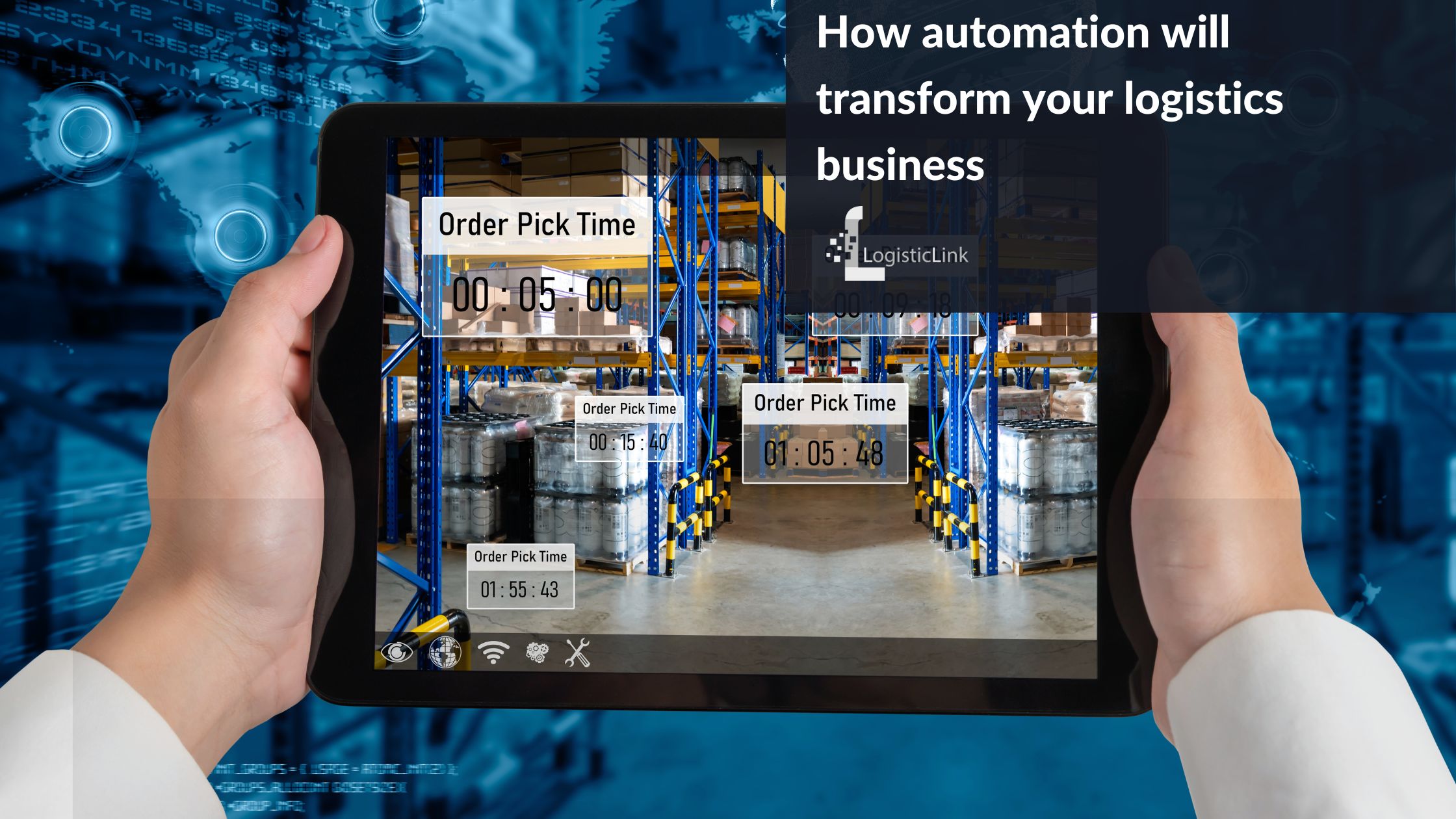The global supply chain is constantly expanding and evolving, and technological advancements eventually assist in streamlining processes. Technological solutions are even more crucial in logistics management, ensuring that goods are kept, transported, and delivered in an effective and timely manner.
Logistics automation software is more important than ever and is a concept that will only gain popularity over time. It’s all about improving efficiency and, whenever possible, reducing waste. Automation is at the heart of many innovative logistics technologies, from smartphones to sensors. And as technology develops, we’ll likely witness even more developments in this field, thus elevating logistics to the level of a sophisticated industry.
The Need for Automation in Logistics
Automation is not just a trendy buzz word; it’s a reality transforming our lives. From smart homes to self-driving automobiles, AI and automation are becoming increasingly prevalent in every sector. Automation is becoming a crucial component of supply chain management in logistics as businesses explore ways to boost productivity and cut costs.
The logistics sector is a massive and diverse ecosystem. It has various players, including producers, sellers, merchants, carriers, suppliers, and buyers. These players’ success depends on their capacity to act effectively and efficiently and coordinate their activities.
It is no longer surprising that the logistics sector is experiencing large-scale investments in AI and automation. Between 2021 and 2030, the size of the global automation market will increase at an annual compound growth rate of 11.9%. Besides the usual improvement in overall process efficiencies, automation has many advantages to the logistics segment. Let’s take a closer look at that.
Benefits of Logistics Process Automation
Here are the various advantages of making your logistics systems automated:
Faster and Accurate Processing of Documents
The effectiveness of document processing automation will mostly depend on two aspects: speed and accuracy. The faster you process a record, the quicker you can start shipping the product out on its path to its destination. And the more precise a record is at each step along the way, the fewer chances there are for mistakes or delays.
By automating your logistics operations with artificial intelligence and other forms of automation, you’ll be able to get your products delivered faster than ever before. Additionally, you’ll be able to make sure that each step of this process is as accurate as possible to avoid any errors along the way, which will free up more time and energy for you to focus on what matters: your clients.
Comprehensive Control
Automation in logistics provides better visibility over your logistics system. All data is recorded and communicated in real time. It facilitates teamwork and coordination by giving you and your collaborators the required information.
You can achieve a synchronized approach between your fulfilment partner and warehouse by using tracked inventory, resulting in faster deliveries. A complete view of the operations will allow you to see potential obstacles or bottlenecks. Automation systems can be customized to fit your business processes and policies that guarantee all in-house or external staff have consistent access to vital data.
Enhanced Safety
Improved safety highlights that automation in the logistics business can reduce the risk of workplace accidents and injuries and enhance the safety of deliveries. This is because automated software can minimize the risk of error, which creates safe conditions in the workplace and during transportation. By reducing the number of manual labour and enhancing the accuracy of tasks, automated software can also comply with legal standards and create a more secure delivery process.
Better Decision Making
Automation in logistics can offer more up-to-date and accurate data, allowing businesses to make informed decisions about their processes. With real-time data, companies can make necessary changes more easily and respond to opportunities or challenges in the market more effectively. Automation can also offer analytics and insights that can improve strategic decision-making, allowing businesses to optimize their processes and enhance overall performance.
More Sustainable Operations
Automation in logistics systems can assist businesses in reducing their environmental impact by optimizing their resource utilization and reducing waste. Automated systems can assist businesses to operate more efficiently, using resources such as labour, time and equipment more effectively.
Just like how automation helps businesses, auto essay writer simplifies writing tasks. It saves time and boosts efficiency by handling research, drafting, and editing tasks, leading to top-notch essays with less manual work.
This can reduce energy use, emissions, and other environmental impacts, making logistics processes more environmentally friendly and sustainable.
Logistic processes you can automate.
Several logistics operations can be automated; some of the most common ones are mentioned below:
- Inventory Management: Automated inventory management software can track stock levels, alerting businesses when stock is running low and needs refilled.
- Shipping and Receiving: Shipping and receiving processes can be automated to streamline the inbound and outbound shipping operations, including label printing, carrier selection, and shipment tracking.
- Route Planning and Optimization: Automation can help in routing planning and optimization to plan the most efficient delivery routes, taking into consideration aspects such as road conditions, traffic, and delivery schedules.
- Freight Management: Freight management can be automated to help companies manage their freight operations, such as freight quotes, tracking and carrier selection.
- Warehouse Management: Automation in warehouse management systems can simplify operations in the warehouse, including packing and shipping.
- Carrier Management: This field can greatly benefit from automation as it allows businesses to manage their relationships with carriers, including contract management, carrier selection, and performance monitoring.
- Order Fulfilment: Automation can streamline receiving, processing, and completing client orders.
- Customer Service: Automated customer service systems, like chatbots, can manage routine inquiries and offer quick answers to customer queries.
Final Thoughts
Automation in the logistics system is the best thing to happen in today’s business market. Unlike some other sectors, the logistics business has many professionals involved, many operations are carried out, and each stage is crucial because it contributes to the smooth flow of products along the chain.

